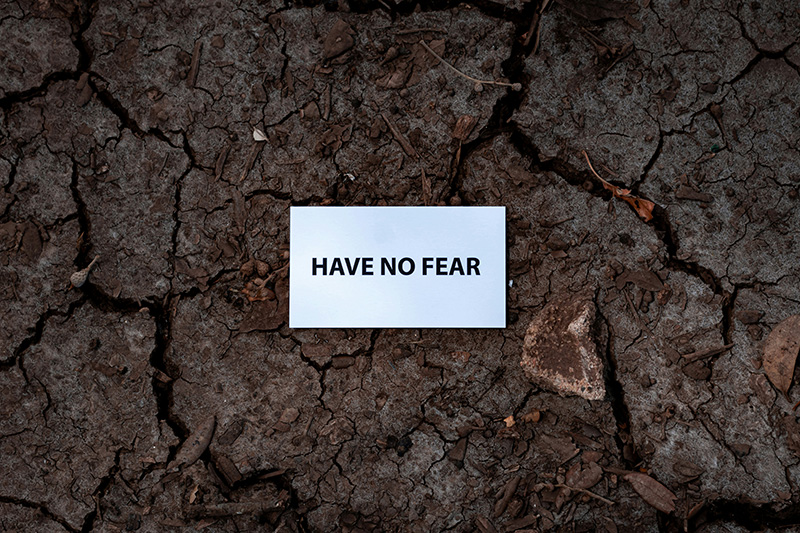Last Updated on October 24, 2022

“Writer's block” goes by many names. Resistance. The Procrastination Demon. The Brain Bully. No matter what you call it, no matter how frequently or infrequently you experience it, The Block will suck the lifeblood from a writer's heart and mind.
Sometimes The Block stops you from moving forward on a story, a poem, a book you started. Your imagination at first hits the ground running, you're writing with confidence and enthusiasm, and then BOOM! The Block thunderstorms down on you and leaves you, post-deluge, in a soul-crushing flood.
Some writers, though, can't even get started. The Block stalls their creative engine before a single word appears on the page.
Almost every writer and artist I know regularly encounters The Block. Both students new to writing and award-winning novelists are well acquainted with its treachery.
And yet most writers and artists who live productive, creative lives find ways through The Block.
How do they do it?
1. Normalize writer's block.
Some of our most revered and respected writers have openly acknowledged facing writer's block.
Toni Morrison, in a New York Times interview with Claudia Dreifus, describes how for three years she simply thought about the characters and story that became Beloved. For THREE YEARS all she did was think. She goes on to say that yes, it took her three years to write the book, “But those other three years I was still at work, though I hadn't put a word down.”
For Morrison, what may have looked like writer's block to a lesser mortal was actually three years of story-related thinking, essential time spent creating a great American novel.
Colson Whitehead, in a Reddit AMA, says, “Writer's block for me is a question I haven't solved yet — Why is Martin doing this? What happens after they meet? What the hell is going on in this scene? It's a question I haven't answered yet, but I trust that in two hours, two days, or two months I will eventually answer it.”
For Whitehead, writer's block is simply a story-related quandary he hasn't figured out but knows he will.
And Jhumpa Lahiri, responding to a reader Q&A in The Times, says, “I think ‘writer's block' is a natural part of the creative process for almost all writers. There are times when one is bursting with ideas and inspiration, and all the necessary components — time, focus, etc. — are in place. But there are other times when one or more of those elements is missing and writing is more difficult as a result.”
For Lahiri, writer's block is a normal part of the creative process. And Whitehead and Morrison agree with her.
As a longtime writer, editor, and writing teacher who has worked with scores of different kinds of creators, I agree too. Writer's block is a natural and necessary part of all imaginative work. Like everything in nature, the imagination ebbs and flows. The key is to embrace the cycle of both flow and ebb. When ebb occurs, be patient while your creative mind explores questions, possibilities. Trust that the flow will return.
2. Make friends with your inner critic.
In the UCLA writing workshop I teach on making friends with the inner critic, one of the first exercises I introduce is “Meet the Board.” The Board composes the collection of inner critical voices that fills the minds of writers and artists (and almost every other human) with cruel and bullying messages.
Students anonymously share what they routinely hear from their Board members. The language is fairly consistent:
“You suck.”
“Your stories (poems, art, memoir, etc.) will never matter to anyone.”
“Just stop now before you humiliate yourself.”
Probably the most popular:
“You're a fake. A fraud. We both know this is the truth.”
Chances are you are familiar with some of those messages. In the workshop, there's usually a huge “a-ha” moment when students discover that those bullies who live in their heads also live in the heads of the entire class.
The Board wields tremendous power over a writer's mind. Often, when a Board member speaks, the writer sits up and listens. The result? Paralyzing writer's block!
It doesn't matter how normal it is for writers to hit tough questions and conundrums in their work. It doesn't matter how many brilliant writers like Morrison, Whitehead, and Lahiri speak to this natural part of the imaginative process. It doesn't matter that you have just encountered a point in your own work when it is useful to pause, reflect, and take time to work out the knot.
All that matters is that bullying message you just heard in your head that stops you dead in your tracks. You put down your pen. Close your laptop. You're done. Forever. (At least that's how it often feels.)
My suggestion: Get to know your Board:
- Begin by giving each of those unkind voices a name. Some memorable ones from my students include The Dream Crusher, Mr. Fatalist, Urgent Earnie, and The Bitch Bully.
- Interview your Board members. Ask them about themselves. Even a benign question can be useful, like “What's your favorite snack food? Favorite binge watch? Favorite sad song?” Write down the whole Q&A.
- Draw a picture of your Board. Go all out here!
In my experience, by the time you get to the drawing, those Board members will be decidedly less mortifying. Their teeth will be less sharp, their claws less terrible. You may even feel a strange affection for them.
And there's one more step:
- Ask your Board, one at a time, how they believe they serve you. What is their intention with all that bullying language?
Almost every Board member my students, clients, and I have encountered says something to the effect of, “I don't want you to get hurt in that cold cruel world.”
This is the time to thank your Board member for their service and invite them to resign.
And if they choose to stay?
Tell them to have a cookie and take a nap. Now is the moment for you, the writer, to return to your senses. Recognize you need only to pause and sit with that question that has arisen in your story, poem, or project. When you're ready, you'll get back to work (and your Board member will still be snoozing).
3. Practice mindful self-compassion.
Mindful self-compassion (MSC) is a powerful way to vaporize The Block and return yourself to a more accepting state of mind. The MSC program was developed by researcher Kristen Neff and psychologist Chris Germer.
When you practice mindful self-compassion, you:
- honor the feelings that arise
- acknowledge that these feelings don't feel good
- recognize that every writer (and almost every human) has felt this way too
- offer yourself some words of kindness and support
One of the most powerful practices that comprises the MSC program is the Self-Compassion Break, a deceptively simple, gentle, kind, and 100% effective way to combat The Block.
When you realize The Block has colonized your brain, follow these simple steps to free yourself from its grip:
- Begin by ALLOWING that you feel creatively blocked. Then name the actual feelings you are experiencing. For example, “I feel like a failure” or “I'm so angry” or “I'm a fake.”
- Then CONFIRM that these feelings don't feel good. For example, “Feeling like a failure does not feel good.”
- The next step is to RECOGNIZE that almost every creative person (and almost every human being) sometimes feels just as you are now feeling. You are not alone.
- Finally, offer yourself words of KINDNESS. When I practice the Self-Compassion Break, I offer myself the message I most want to hear. When The Block surfaces, I say, “I believe in this story. I believe in the merits of my creative work. And I care about both.”
There are recorded versions of the Self-Compassion Break on Neff and Germer's websites, or you can listen to my version.
Keep in mind that we practice self-compassion not to make ourselves feel better, but simply because we're feeling bad. In the case of writer's block, we use the Self-Compassion Break to offer ourselves some kind of support in a moment when we most need it. The practice may not answer the snags in a story, but it will offer refuge from The Block's paralysis.
Recap: The 3 Secret Weapons to Combat Writer's Block
Remember:
- Writer's block is normal.
- Have patience: Take time to problem solve.
- Be kind to yourself.
And then … sit down and write.
- 7 Tips to Help You Succeed With a Writing Coach (Including a Definition of “Writing Coach”) - April 20, 2024
- Identifying Potential Blurbers for Your Book - April 17, 2023
- 3 Ways To Combat Writer's Block (No Weapons Needed!) - April 30, 2021



